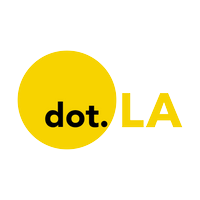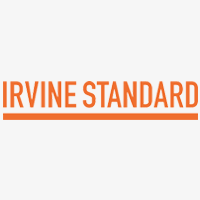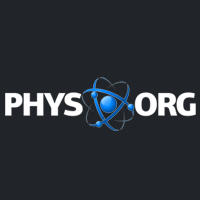Media Watch
This Student-Run VC Firm Is Funding Big Ideas from SoCal's 'Crescent' of High-Profile Schools
Dot. LA -
California Crescent Fund, a new student-run venture capital firm that exclusively funds student startups based in Southern California, wants to offer young founders the option to turn their ideas into reality while they're still in school. Based in Costa Mesa, Crescent, which refers to the arc of schools curving south from UC Santa Barbara to UC San Diego, is run primarily by six student or recent graduate co-founders — or "managing partners" — and a network of student "university partners" in engineering-heavy schools including UC Irvine, USC, UCLA, UCSD and Claremont College. Read More
No, Facebook and Google Are Not Public Utilities
Wired -
Scott Jordan, a professor of electrical engineering and computer science at UC Irvine and former chief technologist at the Federal Communications Commission [said], A search engine that didn’t try to bring the best, most relevant results to the top would be basically worthless. “If you mean nondiscriminatory in a much narrower sense, like does Google’s algorithm include whether the webpage has a conservative or a liberal tint, or is based on anything else—gender, race, what have you—then, yeah, Google might say that they’re nondiscriminatory in these narrower senses. But this doesn’t easily map onto the question of common carriage.” Read More
Large-scale wetlands construction seen as effective treatment for farm runoff
National Science Foundation -
Wetlands constructed along waterways are the most cost-effective way to reduce nitrate and sediment loads in large streams and rivers, according to scientists at the University of California, Irvine; the University of Kansas; the University of Minnesota and other institutions. Rather than focusing on individual farms, the researchers suggest that conservation efforts should be implemented at the watershed scale. … "This work would not have been possible without the diverse expertise and perspective of hydrologists, ecologists, geomorphologists, biogeochemists, social scientists and environmental economists," said lead principal investigator Efi Foufoula-Georgiou, [Distinguished Professor, civil & environmental engineering], of the University of California, Irvine. Read More
UCI: A new building for new research
Irvine Standard -
UC Irvine has opened its new Interdisciplinary Science and Engineering Building, introducing a novel approach to research. Colleges traditionally organize buildings by discipline, while UCI is bringing disciplines together to address grand challenges, such as those involving health, energy and the environment. Read More
After decades of fighting and freeways, Orange County is finally getting a streetcar
Los Angeles Times -
“I think it took a long time to convince people in Orange County that there was a need for it, that there was room for it and that it’s worth the money and the investment,” Sarah Catz, [lecturer], a researcher in the Institute of Transportation Studies at UC Irvine and a former OCTA board member, said of light rail. [Subscription required, you can request an electronic copy of the article by sending an email to communications@uci.edu.] Read More
Constructed wetlands are best protection for agricultural runoff into waterways
Phys Org -
"This work would not have been possible without the diverse expertise and perspective of the team composed of hydrologists, ecologists, geomorphologists, biogeochemists, social scientists and environmental economists," said Efi Foufoula, [Distinguished Professor], the lead principal investigator on the project from the University of California, Irvine. "The sustained NSF support allowed us to take a fresh view of the problem and take the time needed to collect extensive field data, build new models and engage with stakeholders. We hope that our results will affect policy and management as the clock ticks to meet the water quality targets of the state." Read More
U.S. electrical grids are not prepared for climate change
Marketplace -
How prepared are American power grids for climate change? As the weather gets more extreme, “in general I would say grids are not prepared for climate change,” said Brian Tarroja, a researcher in civil and environmental engineering at University of California, Irvine. … “When you have microgrids and energy storage and distrbuted solar and things like that, you have more levers you can pull to make sure that the electric load is met,” he said. Read More
R&D Toward Sustainable Technologies Is the Key to Achieving California’s Climate Goal
Power Magazine -
Vojislav Stamenkovic, [professor of chemical & biomolecular engineering and] inaugural director of the Horiba Institute at UCI writes, “R&D initiatives for advanced lead battery technology are already underway in California through the Advanced Power and Energy Program (APEP); the recently established Horiba Institute for Mobility and Connectivity (HIMaC2) at the University of California, Irvine; and the industry-academic partnership between University of California, Los Angeles and the Consortium for Battery Innovation, among others.” Read More
Miss Fountain Valley comes in third for Miss California title
Orange County Register -
Maaikee Pronda, the reigning Miss Fountain Valley, was crowned second runner-up at the Miss California competition in Fresno Friday. … At age 20, Pronda earned her bachelor’s degree in biomedical engineering at UC Irvine .… She graduated magna cum laude from both Fountain Valley High School and UC Irvine. At UCI, she was president of the Engineering Student Council and initiated “Introduce a Girl to Engineering Day,” which partnered local companies with Girls Scouts and their parents during an interactive learning event. Among honors she has received are the UCI Biomedical Engineering Student of the Year, the Outstanding Engineering Student Award given by the Orange County Engineering Council, and UCI’s Chancellor’s Award of Distinction. [Subscription required, campus-wide access provided by UCI Libraries. Sign-up here: https://guides.lib.uci.edu/news/ocregister] Read More
Yukon-Kuskokswim in Colorful Transition: Remarkable Example of How Water and Ice Can Shape the Land
SciTechDaily -
According to Lawrence Vulis, a graduate student at the University of California, Irvine, the delta would have appeared much more inundated immediately following the melting of snow and ice a few weeks prior to this image. Stream gauges and satellite images suggest that the bulk of the flooding had already subsided. Still, the flooding was recent enough that the plenty of ponding remained on May 29. As summer advances, the floodwater will continue to recede and the wetlands will continue to green up with vegetation. Read More










